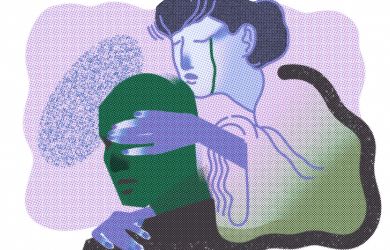
Originally published on metropolis.co.jp on May 2011

Kensuke Hatakeyama, whose home in Miyagi Prefecture was destroyed by the tsunami on Mar 11. Photo: J.P.R. Hastings
As with so many other things, March 11 changed all that.
Compared to what happened on that day, “rugby is not that important” commented International Rugby Board chairman Bernard Lapasset on a recent visit to Tokyo. The initial response of local rugby authorities was to wait and see how things unfolded before making any decisions, a stark contrast to baseball and its initial attitude of “we’ll carry on as if nothing happened.”
Not that rugby was out of the headlines. At a time when foreign players from a number of sports were fleeing Japan, members of the Kamaishi Seawaves—based on the coast in Iwate Prefecture—refused to be evacuated, opting to stay and help the port town that was decimated by the tsunami.
“We can’t leave our mates,” said Australian Scott Fardy.
But slowly the rugby world accepted that things could not go on as planned.
The Yokohama Country & Athletic Sevens was the first event to be canceled and it was soon followed by the inaugural Tokyo Sevens. While the former was a domestic competition, the latter was an international event organizers hoped would show the IRB that Japan was ready to stage a leg of the HSBC World Sevens Series.
With different governments offering contrasting views as to the safety of Japan, the number of cancelations escalated. Japan’s game with Sri Lanka in the HSBC Asian Five Nations (the only home game the Brave Blossoms had in the competition) was called off before the IRB decided to move all but one game of the Pacific Nations Cup from Tokyo to Fiji.
The decisions, sadly, were clouded in mystery, with a number of contrasting messages sent out from the parties involved as to why games were moved overseas rather than elsewhere in Japan.
Certain elements within the JRFU were asking: “Why would we cancel the events? It makes no sense.” When questioned about the cancelations, Mike Miller, CEO of the IRB, simply stated: “The majority of support was that the [PNC] tournament should be moved.”
However, he did say that the IRB wanted to make a statement that things were getting back to normal and as such Japan’s game with Samoa will still go ahead on July 2. That will be one of three chances for local fans to see John Kirwan’s team play before they head off to New Zealand in September for the World Cup.
Kirwan and his team have spent the last month traveling in Asia doing whatever they can to raise awareness of what is still happening in Japan. For example, Kensuke Hatakeyama, whose family home in Kesenuma, Miyagi Prefecture was destroyed by the March 11 tsunami, has been showing players and media representatives from the countries they visited a video he made of the destruction.
The team returns at the end of May and will take on a Top League All-Star XV (no mean side given some of the off-season acquisitions) on June 26 in a fundraiser at Tokyo’s Chichibunomiya Stadium. The Brave Blossoms will also take on the US Eagles at the same venue on August 21.
Before all that, a sevens tournament has been planned for May 29 with all proceeds going to help victims of the March 11 tragedy. The tournament will feature the national sevens team, the top eight sides in the Top League and three guest sides, of which the Seawaves will be one.
No prizes for guessing who the fans will be rooting for.
Pacific Nations Cup: Japan vs. Samoa. July 2, 6:10pm, price TBA. Chichibunomiya Rugby Ground. Tel: 03-3401-3290.





